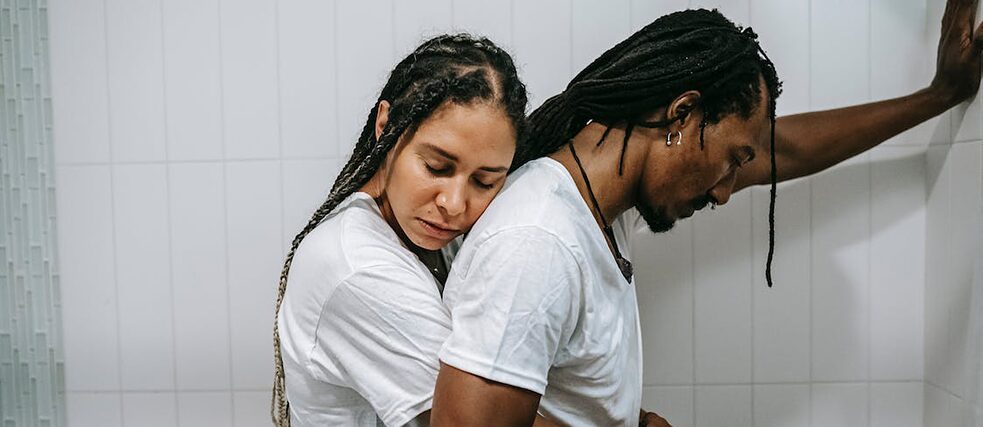The Theme
A Matter of Trust
Trust plays a central role in many areas of life and cultures. Societies rely on trust in political systems and cultural codes, in personal and business relationships, in international agreements and trustworthy information. Trust in one’s self, one’s own capabilities and power of judgement, is also of fundamental importance for social interactions. Yet what exactly is trust and how is it built? What functions does trust fulfil in society, media and politics – and what are the consequences when trust is lost? What role does trust play in the global economy and in dealing with new technology? The Kultursymposium Weimar 2023 focused on the concept of trust from an interdisciplinary and global perspective. Three focal points illuminated selected aspects of this multi-layered topic.
A delicate Flower
Trust and the Invididual
There are certain requirements for trust to develop and grow: positive experiences of self-efficacy for example, strengthen trust in ourselves and our social environment. Although trust can take on very different forms at individual levels, it remains the foundation of interpersonal relationships.
The first focus was therefore on the big question of what trust actually is – and what role it plays in the life of each individual: how is trust built? What are the criteria for trusting some and not others? How can trust be developed and lived in the most varied relationship models? What role does trust play in evolution and in the world of animals? When should we be mistrustful? What is healthy scepticism – and when does paranoia begin to creep in? Last but not least: how can trust be reinstated once it has been destroyed?
We often consider trust as something positive in our society. Its counterpart, distrust, on the other hand, has a less good reputation, although it is just as necessary to combat manipulation, fraud and abuse. Participants in the Kultursymposium Weimar discussed whether a general increase in trust should be the ultimate aim and what requirements are needed to make trust possible.
The first focus was therefore on the big question of what trust actually is – and what role it plays in the life of each individual: how is trust built? What are the criteria for trusting some and not others? How can trust be developed and lived in the most varied relationship models? What role does trust play in evolution and in the world of animals? When should we be mistrustful? What is healthy scepticism – and when does paranoia begin to creep in? Last but not least: how can trust be reinstated once it has been destroyed?
We often consider trust as something positive in our society. Its counterpart, distrust, on the other hand, has a less good reputation, although it is just as necessary to combat manipulation, fraud and abuse. Participants in the Kultursymposium Weimar discussed whether a general increase in trust should be the ultimate aim and what requirements are needed to make trust possible.
THE INVISIBLE RESOURCE
Trust in Society, Politics and Media
The second focal point of the Kultursymposium Weimar 2023 was dedicated to the societal and political dimension of trust: what are the consequences if people lose their trust in democracy and state institutions? Which niches does trust seek under the conditions of a dictatorship? Do we trust science – or rather our gut feeling? Is the media really being trusted less and less around the world and, if so, why is that? How much trust should people be given when they have broken rules and abused trust? What role does trust play in international relations?
Democratic societies are based on trust to a particularly large extent. If democratic processes and institutions are actively undermined, for example, through abuse of power in the form of corruption or nepotism, the social foundation becomes torn and democracy is in danger. The loss of trust in media and science also plays a role here. How can we determine fact from fiction with the growing influence of social media and deepfake technologies? Where does legitimate criticism end, where do conspiracy theories and targeted manipulation begin? In Weimar, we discussed how these challenges could be met effectively and what role trust plays as an invisible resource in our social interactions.
Democratic societies are based on trust to a particularly large extent. If democratic processes and institutions are actively undermined, for example, through abuse of power in the form of corruption or nepotism, the social foundation becomes torn and democracy is in danger. The loss of trust in media and science also plays a role here. How can we determine fact from fiction with the growing influence of social media and deepfake technologies? Where does legitimate criticism end, where do conspiracy theories and targeted manipulation begin? In Weimar, we discussed how these challenges could be met effectively and what role trust plays as an invisible resource in our social interactions.
UNKNOWN TERRITORY
Trust, Economy and Technology
In the third focal point, we discussed the importance of trust in economy and technology: what role does trust play in modern working culture? How do trust and inflation influence one another? Does blockchain technology have the potential to fundamentally change trust relationships? How can credit extensions work on the basis of trust? Can robots learn trust and can technology replace intuition and gut feelings? Which data do we entrust to our apps – and are we often too thoughtless about it? The pandemic has created a field of tension between trust and control in our work life. While new management methods are based on autonomy and decentralised decisions, the counter-tendency is towards digital monitoring and control.
Equally, trust takes on an important function in our legal and economic systems. For example, blockchain technology can strengthen the trust between contractual parties by transparently and irreversibly defining agreements, without room for forgery. But do blockchain-based contracts really have the potential to replace state institutions such as notaries, land registries and courts, which ensure trust and legal security in many countries today? At the Kultursymposium Weimar 2023, we discussed how interpersonal trust in daily life is gradually changing through the use of smart technology.
Equally, trust takes on an important function in our legal and economic systems. For example, blockchain technology can strengthen the trust between contractual parties by transparently and irreversibly defining agreements, without room for forgery. But do blockchain-based contracts really have the potential to replace state institutions such as notaries, land registries and courts, which ensure trust and legal security in many countries today? At the Kultursymposium Weimar 2023, we discussed how interpersonal trust in daily life is gradually changing through the use of smart technology.


